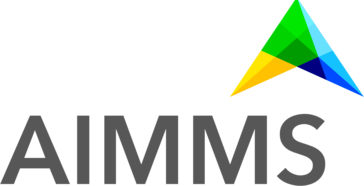New initiative!
Webinar for Analytics Practitioners (WAP)
Back to School
For Analytics practitioners it is difficult to remain up-to-date with respect to the newest scientific developments that are relevant for practice. There are at least two reasons why this is difficult for them:
- There are many Analytics related scientific journals, but most of the papers are not relevant for practitioners. For practitioners it is very difficult to detect which of these papers are really relevant. This is one of the reasons why many Analytics practitioners who have an Operations Research background are not aware of the potential of, e.g., adaptive robust optimization, the modeling and solver power of conic (esp. conic quadratic and exponential cone) optimization, the optimization power for machine learning, etc.
- The Analytics field is multi-disciplinary with respect to its methodology. It not only consists of Operations Research methodology, but also a significant part of Statistics and Artificial Intelligence / Machine Learning. This combination of methodologies from different disciplines makes predictive and prescriptive analytics extremely powerful in practice. However, it is difficult to remain up-to-date with respect all new innovations in these different disciplines.
Therefore, we will start a Webinar for Analytics Practitioners (WAP), 6 times a year, each one takes one hour, to present recent scientific analytics innovations that really matter for practitioners. Hence, this webinar can be viewed as a kind of "Back to School" for Analytics practitioners. Example of WAP topics are: Robust Optimization, Conic Optimization, Optimization and Machine Learning, Visualization, Process Mining, etc.
The first WAP will be on June 23, 2020, CET 17.00-18.00PM
Speaker: Dick den Hertog (Tilburg University, Tilburg, The Netherlands)
Title: Do you use optimization? Then also use robust and adaptive optimization.
Abstract: Many optimization practitioners trust their models too much. Real-life optimization problems often contain parameters that are uncertain, due to, e.g., estimation or implementation errors. In textbooks Sensitivity Analysis is recommended to analyze the impact of uncertainty in the parameter values. We plea for always performing a Robustness Analysis of the solution found. If the solution appears to be not robust, the next step is to use robust and adaptive optimization. In this presentation we explain the core ideas of robust and adaptive optimization and show how to successfully apply them in practice. The idea of robust optimization is to find a solution that is immune against uncertainties in the parameter values. Adaptive robust optimization is able to use information on the uncertain data in earlier stages. Robust optimization is valuable for practice, since it can solve large-scale uncertain problems and it only requires crude information on the uncertain parameters. In this tutorial type presentation we restrict ourselves to linear optimization. We will treat the basics of robust linear optimization, and also show the huge value of robust optimization in (dynamic) multistage problems. Robust and adaptive optimization has already shown its high practical value in many fields: logistics, engineering, finance, medicine, etc. We will discuss some of these applications.
The second WAP will be on August, 25, 2020, CET 17.00-18.00PM
Speaker: Dimitris Bertsimas (MIT, Cambridge, USA)
Title: Machine Learning under a modern optimization lens To receive the information on WAP, the zoom link, and the link to the videos afterwards, you have to subscribe. To subscribe to the WebinarforAnalyticsPractitioners mailing list, go to the web page: https://lists.uvt.nl/mailman/listinfo/WebinarforAnalyticsPractitioners 1. Fill in your email address
2. Pick a password
3. Reenter password
4. Click 'subscribe'
Follow further instructions. If you have questions with respect to the subscription, please e-mail to D.denHertog@tilburguniversity.edu We are looking forward to meet you at the Webinars for Analytics Practitioners! Dimitris Bertsimas (MIT, Cambridge, USA) Dick den Hertog (Tilburg University, Tilburg, The Netherlands)



